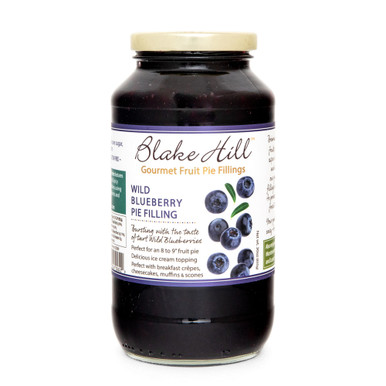Farm to Table: Unraveling the Journey of an Egg
September 6, 2023

Eggs, a staple in countless kitchens worldwide, have a fascinating journey from the chicken coop to our tables. In this exploration, we'll follow the life of an egg, unraveling its path, nutritional aspects, and various considerations surrounding this versatile food.
The Egg Production Process: How Many Eggs Can One Chicken Lay?
The number of eggs a chicken can produce in a year varies widely based on several factors. The breed plays a significant role; certain breeds, like White Leghorns, are prolific layers, while others focus on meat production and lay fewer eggs. Age is another factor; hens typically start laying eggs at around 5 to 6 months of age and lay most consistently during their first two years. Diet and environmental conditions also matter; chickens provided with a balanced diet and a stress-free environment are more likely to lay eggs regularly. Additionally, artificial lighting can be used to extend daylight hours, encouraging more consistent egg production.
Enhancing Egg Flavor: What Makes Eggs Taste Better?
The flavor of an egg is a complex interplay of various factors. A significant contributor is the chicken's diet. Chickens that have access to a diverse range of foods, such as insects, plants, and grains, produce eggs with richer and more nuanced flavors. This variety in their diet imparts unique tastes to the eggs. For example, eggs from free-range or pastured chickens often have a deeper, more robust flavor compared to those from chickens raised in confined spaces. Freshness also plays a pivotal role; eggs that are fresher generally taste better. Fresher eggs have firmer whites and taller yolks, making them ideal for dishes where the yolk's appearance matters, such as poached or sunny-side-up eggs.
Boosting Nutritional Value: What Makes Eggs More Nutritious?
Eggs are already a nutritional powerhouse, but their nutritional value can be enhanced in several ways. One method is to focus on the chicken's diet. Chickens fed diets rich in omega-3 fatty acids, often through the inclusion of flaxseed or fish oil, lay eggs with higher levels of these heart-healthy fats. Omega-3 enriched eggs are considered more nutritious due to their potential benefits in reducing the risk of heart disease and improving overall cardiovascular health. Additionally, eggs from chickens that are raised on pasture or allowed to forage for insects tend to have higher levels of certain vitamins and minerals, such as vitamin D and selenium, making them more nutritionally dense.
Free-Range Eggs vs. Conventional Eggs: Are Free-Range Eggs Better?
Free-range eggs come from chickens that have access to the outdoors, allowing them to roam and forage for food. Advocates of free-range eggs argue that they may be nutritionally superior to conventional eggs due to the chickens' more varied diet. This diet can lead to higher levels of certain nutrients, such as omega-3 fatty acids and vitamin D, compared to eggs from chickens kept in confined spaces. However, it's important to note that the nutritional differences between free-range and conventional eggs can be relatively small and may not significantly impact a well-balanced diet. The choice often comes down to personal values and animal welfare concerns, as free-range chickens generally have better living conditions.
The Organic Egg Debate: Are They Worth the Extra Money?
Organic eggs are produced by chickens that are raised according to specific organic farming standards. These standards include a diet free of synthetic pesticides, herbicides, and genetically modified organisms (GMOs). While organic eggs can be more expensive than conventional eggs, some people believe they are worth the extra cost due to potential health and environmental benefits. Organic farming practices aim to reduce the use of synthetic chemicals, which may lead to lower pesticide residues in eggs and a reduced impact on the environment. Whether organic eggs are worth the extra money depends on individual preferences, values, and priorities, including concerns about chemical exposure and sustainable farming practices.
Egg Storage: How Long Can Eggs Be Unrefrigerated?
Egg safety is paramount, and proper storage is crucial to maintaining their freshness and safety. Eggs stored at room temperature should ideally be consumed within 7 to 10 days. However, this timeframe can vary based on factors such as temperature and humidity. Warmer conditions may lead to eggs spoiling more quickly. To check the freshness of room-temperature eggs, the "float test" can be employed. If an egg sinks and lays flat on its side when placed in a bowl of water, it is considered fresh. If it stands upright or floats, it is best to discard it, as it may no longer be safe to eat. Refrigeration is the recommended storage method for eggs for long-term freshness and safety. Stored in the refrigerator at temperatures below 40°F (4°C), eggs can maintain their quality for several weeks to a few months.
Exploring Different Types of Eggs: More Than Just Chicken Eggs
While chicken eggs are the most commonly consumed eggs worldwide, various other types of eggs offer unique flavors, textures, and culinary possibilities. Duck eggs, for instance, have gained popularity for their richer taste and larger yolks. Their larger size makes them a favored choice for baking, especially in recipes that require extra moisture and richness. Quail eggs are another variety known for their delicate and slightly gamey flavor. They are often enjoyed as bite-sized snacks, appetizers, or garnishes for salads and sushi. Turkey eggs, although less common, are occasionally sought after for their unique taste, which is often described as a cross between chicken and duck eggs.
Nutritional Variations: Are Eggs from Certain Animals Better?
Different types of eggs do offer varying nutritional profiles, and the choice between them depends on individual dietary preferences and nutritional needs. Duck eggs, for instance, contain more protein and fat than chicken eggs, making them a richer and heartier option. They also provide higher levels of certain vitamins and minerals, including vitamin B12 and selenium. Quail eggs, on the other hand, are exceptionally rich in several key nutrients. They are known for their high content of vitamin B2 (riboflavin), which plays a crucial role in energy production and overall health. Quail eggs are also an excellent source of choline, a nutrient important for brain health and development.
The Science of Cooking: Is a Certain Way of Cooking Eggs More Nutritious?
The way you prepare eggs can indeed impact their nutritional content. Overcooking eggs, particularly by high-heat methods like frying or hard-boiling, can lead to nutrient loss. Heat-sensitive vitamins, such as B vitamins, can degrade when exposed to prolonged high temperatures. To preserve as many nutrients as possible, opt for gentle cooking methods like poaching or soft boiling. These techniques involve lower temperatures and shorter cooking times, helping to maintain the egg's nutritional value. Additionally, cooking eggs with their yolks intact can help retain their nutrient content, as many essential nutrients are concentrated in the yolk.
Egg Consumption: How Many Eggs Are Healthy to Eat Weekly?
Eggs are a nutritious addition to a balanced diet, but like many foods, moderation is key. Current dietary guidelines suggest that consuming up to seven eggs per week is safe for most people. However, individual health conditions, such as cholesterol levels, may influence your ideal egg consumption. It's essential to consider your overall diet and lifestyle when determining how many eggs to include in your weekly meals. Additionally, incorporating a variety of foods from different food groups ensures a balanced and nutritious diet.
In conclusion, the journey of an egg from the chicken to the table is a complex and fascinating process. Understanding the factors that influence egg production, flavor, nutrition, and safety empowers individuals to make informed choices about this versatile food. Whether you prefer free-range, organic, or conventional eggs, or if you're interested in exploring different types of eggs, making informed decisions about egg consumption can contribute to a healthy and enjoyable diet.
The Egg Production Process: How Many Eggs Can One Chicken Lay?
The number of eggs a chicken can produce in a year varies widely based on several factors. The breed plays a significant role; certain breeds, like White Leghorns, are prolific layers, while others focus on meat production and lay fewer eggs. Age is another factor; hens typically start laying eggs at around 5 to 6 months of age and lay most consistently during their first two years. Diet and environmental conditions also matter; chickens provided with a balanced diet and a stress-free environment are more likely to lay eggs regularly. Additionally, artificial lighting can be used to extend daylight hours, encouraging more consistent egg production.
Enhancing Egg Flavor: What Makes Eggs Taste Better?
The flavor of an egg is a complex interplay of various factors. A significant contributor is the chicken's diet. Chickens that have access to a diverse range of foods, such as insects, plants, and grains, produce eggs with richer and more nuanced flavors. This variety in their diet imparts unique tastes to the eggs. For example, eggs from free-range or pastured chickens often have a deeper, more robust flavor compared to those from chickens raised in confined spaces. Freshness also plays a pivotal role; eggs that are fresher generally taste better. Fresher eggs have firmer whites and taller yolks, making them ideal for dishes where the yolk's appearance matters, such as poached or sunny-side-up eggs.
Boosting Nutritional Value: What Makes Eggs More Nutritious?
Eggs are already a nutritional powerhouse, but their nutritional value can be enhanced in several ways. One method is to focus on the chicken's diet. Chickens fed diets rich in omega-3 fatty acids, often through the inclusion of flaxseed or fish oil, lay eggs with higher levels of these heart-healthy fats. Omega-3 enriched eggs are considered more nutritious due to their potential benefits in reducing the risk of heart disease and improving overall cardiovascular health. Additionally, eggs from chickens that are raised on pasture or allowed to forage for insects tend to have higher levels of certain vitamins and minerals, such as vitamin D and selenium, making them more nutritionally dense.
Free-Range Eggs vs. Conventional Eggs: Are Free-Range Eggs Better?
Free-range eggs come from chickens that have access to the outdoors, allowing them to roam and forage for food. Advocates of free-range eggs argue that they may be nutritionally superior to conventional eggs due to the chickens' more varied diet. This diet can lead to higher levels of certain nutrients, such as omega-3 fatty acids and vitamin D, compared to eggs from chickens kept in confined spaces. However, it's important to note that the nutritional differences between free-range and conventional eggs can be relatively small and may not significantly impact a well-balanced diet. The choice often comes down to personal values and animal welfare concerns, as free-range chickens generally have better living conditions.
The Organic Egg Debate: Are They Worth the Extra Money?
Organic eggs are produced by chickens that are raised according to specific organic farming standards. These standards include a diet free of synthetic pesticides, herbicides, and genetically modified organisms (GMOs). While organic eggs can be more expensive than conventional eggs, some people believe they are worth the extra cost due to potential health and environmental benefits. Organic farming practices aim to reduce the use of synthetic chemicals, which may lead to lower pesticide residues in eggs and a reduced impact on the environment. Whether organic eggs are worth the extra money depends on individual preferences, values, and priorities, including concerns about chemical exposure and sustainable farming practices.
Egg Storage: How Long Can Eggs Be Unrefrigerated?
Egg safety is paramount, and proper storage is crucial to maintaining their freshness and safety. Eggs stored at room temperature should ideally be consumed within 7 to 10 days. However, this timeframe can vary based on factors such as temperature and humidity. Warmer conditions may lead to eggs spoiling more quickly. To check the freshness of room-temperature eggs, the "float test" can be employed. If an egg sinks and lays flat on its side when placed in a bowl of water, it is considered fresh. If it stands upright or floats, it is best to discard it, as it may no longer be safe to eat. Refrigeration is the recommended storage method for eggs for long-term freshness and safety. Stored in the refrigerator at temperatures below 40°F (4°C), eggs can maintain their quality for several weeks to a few months.
Exploring Different Types of Eggs: More Than Just Chicken Eggs
While chicken eggs are the most commonly consumed eggs worldwide, various other types of eggs offer unique flavors, textures, and culinary possibilities. Duck eggs, for instance, have gained popularity for their richer taste and larger yolks. Their larger size makes them a favored choice for baking, especially in recipes that require extra moisture and richness. Quail eggs are another variety known for their delicate and slightly gamey flavor. They are often enjoyed as bite-sized snacks, appetizers, or garnishes for salads and sushi. Turkey eggs, although less common, are occasionally sought after for their unique taste, which is often described as a cross between chicken and duck eggs.
Nutritional Variations: Are Eggs from Certain Animals Better?
Different types of eggs do offer varying nutritional profiles, and the choice between them depends on individual dietary preferences and nutritional needs. Duck eggs, for instance, contain more protein and fat than chicken eggs, making them a richer and heartier option. They also provide higher levels of certain vitamins and minerals, including vitamin B12 and selenium. Quail eggs, on the other hand, are exceptionally rich in several key nutrients. They are known for their high content of vitamin B2 (riboflavin), which plays a crucial role in energy production and overall health. Quail eggs are also an excellent source of choline, a nutrient important for brain health and development.
The Science of Cooking: Is a Certain Way of Cooking Eggs More Nutritious?
The way you prepare eggs can indeed impact their nutritional content. Overcooking eggs, particularly by high-heat methods like frying or hard-boiling, can lead to nutrient loss. Heat-sensitive vitamins, such as B vitamins, can degrade when exposed to prolonged high temperatures. To preserve as many nutrients as possible, opt for gentle cooking methods like poaching or soft boiling. These techniques involve lower temperatures and shorter cooking times, helping to maintain the egg's nutritional value. Additionally, cooking eggs with their yolks intact can help retain their nutrient content, as many essential nutrients are concentrated in the yolk.
Egg Consumption: How Many Eggs Are Healthy to Eat Weekly?
Eggs are a nutritious addition to a balanced diet, but like many foods, moderation is key. Current dietary guidelines suggest that consuming up to seven eggs per week is safe for most people. However, individual health conditions, such as cholesterol levels, may influence your ideal egg consumption. It's essential to consider your overall diet and lifestyle when determining how many eggs to include in your weekly meals. Additionally, incorporating a variety of foods from different food groups ensures a balanced and nutritious diet.
In conclusion, the journey of an egg from the chicken to the table is a complex and fascinating process. Understanding the factors that influence egg production, flavor, nutrition, and safety empowers individuals to make informed choices about this versatile food. Whether you prefer free-range, organic, or conventional eggs, or if you're interested in exploring different types of eggs, making informed decisions about egg consumption can contribute to a healthy and enjoyable diet.












